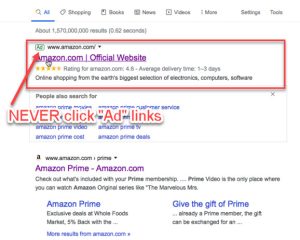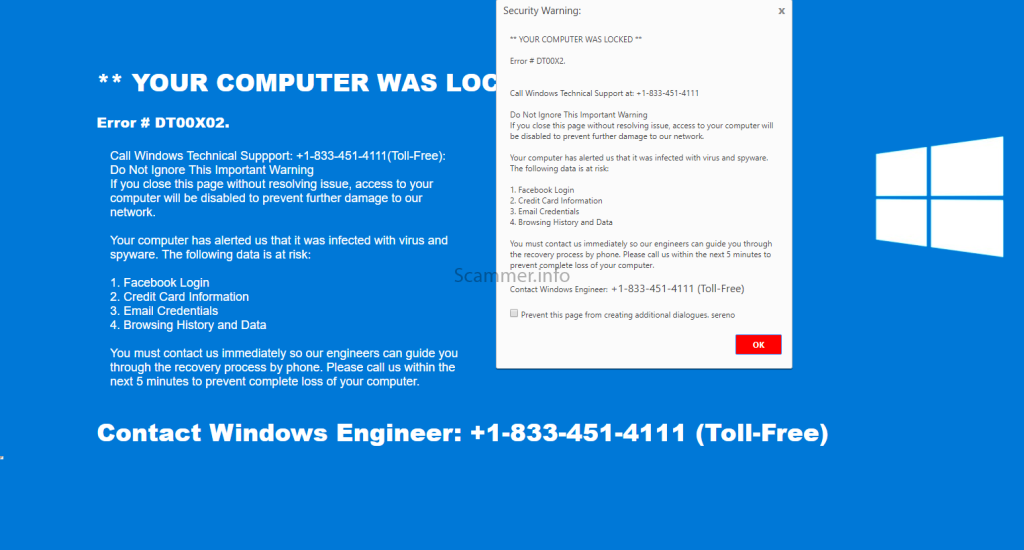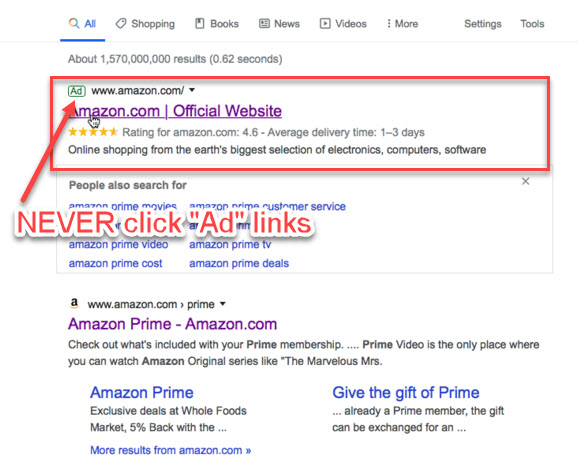There has been an upsurge of fake technical support links and pop-ups being pushed out over the last few months and one of the latest tricks up their sleeves are Google Ads that look like legit sites. The scammers basically pay the search engines (just as any company would) to place their ads at the top of search results. Only these links don’t take you to legit websites, they take you to malicious websites.
I have had numerous people contacting me believing they are victims of ransomware, malware or viruses, only to find that they are actually just being served a fake tech support website. Unfortunately, many of the people (elderly) have been duped into calling the phone number that is presented and conned into providing their credit card information to get tech support.
Why do they do it?
- Money or PII (Personally Identifiable Information) – Plain and simple. That’s almost all it’s for. Once in a rare while the goal is to add your computer to a ‘botnet‘. But mostly it’s just to get money or personal information (to sell).
The Scenario
Here’s what happens:
- A user opens Google or Yahoo (or other search engines) and types in “Amazon” or “Facebook” or anything else that people frequently go to – into the search box.
- They then click the first link they see (which is often a malicious ad to a fake company).

- The next thing they know, they have an alert telling them they are infected with a virus, malware or that their computer is being held for ransom. In reality, it’s just an image designed to scare them (and it works).

Image courtesy Scammer.info
How to prevent this
- Make sure you have a decent antivirus and that it is updated. Mac users (and I can say this, because I AM a Mac user), don’t be stupid. Of course your Mac can get a virus just like any other computer can. Despite what they (supposed “experts”) will tell you, Macs are actually very guilty of ‘passing’ viruses to the rest of the world because they are convinced they don’t need antivirus. Get something good, like Sophos (my preferred choice), Symantec or McAfee.
- DON’T BE LAZY – If you know the website address (such as amazon.com, yahoo.com, tdbank.com, etc.) don’t be lazy and ‘search for it’, actually type it into the address bar at the top of the screen. That way you know you are going to the real website.
- NEVER click the first links that say “Ad” to the left of the links.
- DON’T over-react. The scammers are counting on you freaking out and calling the phone number. Step back, think, take a breath and call a computer person you trust to check it out first. If you’re in the New England area you can always reach out to me (https://stadtlanderdesigns.com), I won’t charge you anything to just look at it and see if it’s legit.

